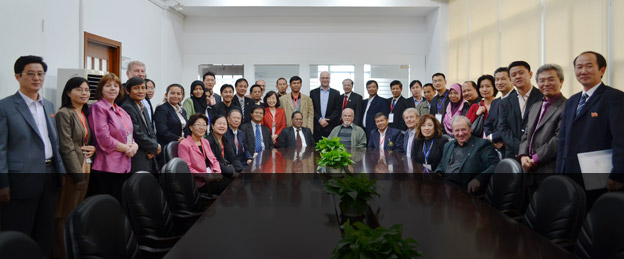Full issue 11
As a result of the decades long discussions about approaches of curricula development for TVET completely different perspectives have emerged. Above all the discussion on academic subject matters for different courses, concepts, articulation, and contextualisation of curricula or standard-based curricula are in the focus of interest. Curricula approaches, however, can not only be closely linked to learning theories – such as the constructivist learning principles and others. Curricula approaches might also give an orientation along the established and rather formal classifications of curricula such as learner-centred curricula approaches, spiral curricula approaches, the action-based learning approach etc. Furthermore, the design and the development of curricula – based on research – is an important issue for the establishment of suitable curriculum approaches that supports the development of quality in TVET and is matching the demands of the society and the labour market.

Dr.Rolf Burghardt Gennrich
Consultant
International Senior Expert TVET-Asia
Laos
SAB, Issue 8
Field of expertise/main research projects:
Dr Rolf Gennrich has been closely associated with Technical and Vocational Education and Training (TVET) for over 50 years. His professional career started in 1963 as a skilled worker and master craftsman. Soon afterward he became a trainer, teacher and school manager at a vocational training school associated to a state holding company in the construction sector. He has held various leading positions since 1983 within vocational schools, government authorities and at TVET-research institutions in Germany. Completing post-graduate studies in the adult vocational education at the Humboldt University of Berlin, Germany, in 1991 he was awarded a doctorate in vocational pedagogy at the same university. From 1975 to 1978 he was assigned overseas as a TVET expert and team leader tasked with establishing the first vocational training centre for construction workers in Vinh, Vietnam. Following that he was employed by the German Agency of Technical Cooperation GTZ (now GIZ) for over 17 years as a team leader and programme director in several of the countries undergoing rapid development at the time. Aside from other responsibilities he was involved in vocational system advisory and human resource development projects to promote labour market-oriented TVET development and research. Dr Rolf Gennrich has spent over 27 years of his professional career working as an expert in TVET in various developing countries, largely in North Africa, the South East Asian region and China. At the moment he is active as a consultant and lecturer in strategy and policy development for the TVET sector assisting government authorities and international development cooperation agencies serving also as a coach and management advisor. Dr Gennrich is a frequent guest lecturer at universities offering vocational teacher education programmes. From 2008 he has been assisting the German development agency GIZ to found the Asia's first regional cooperation platform on vocational teacher education (RCP).


